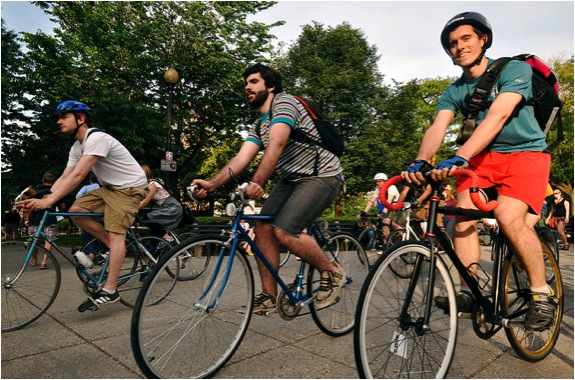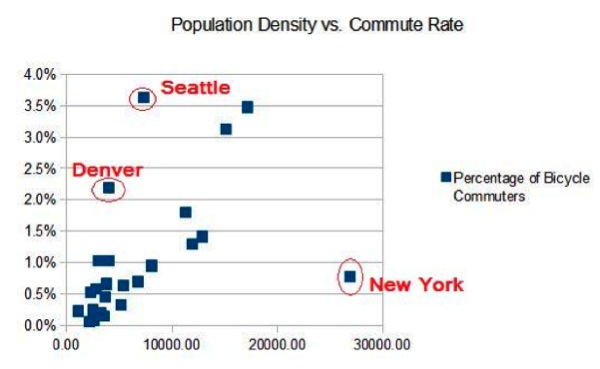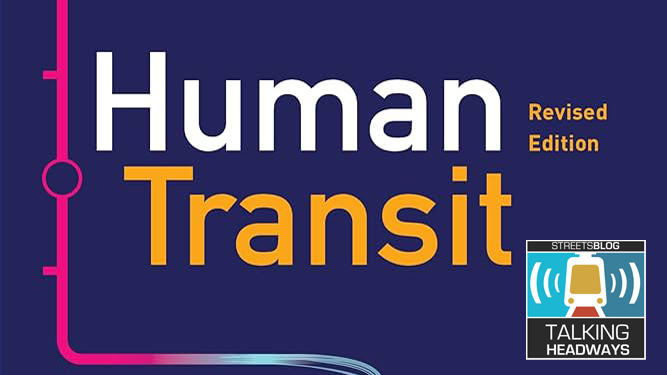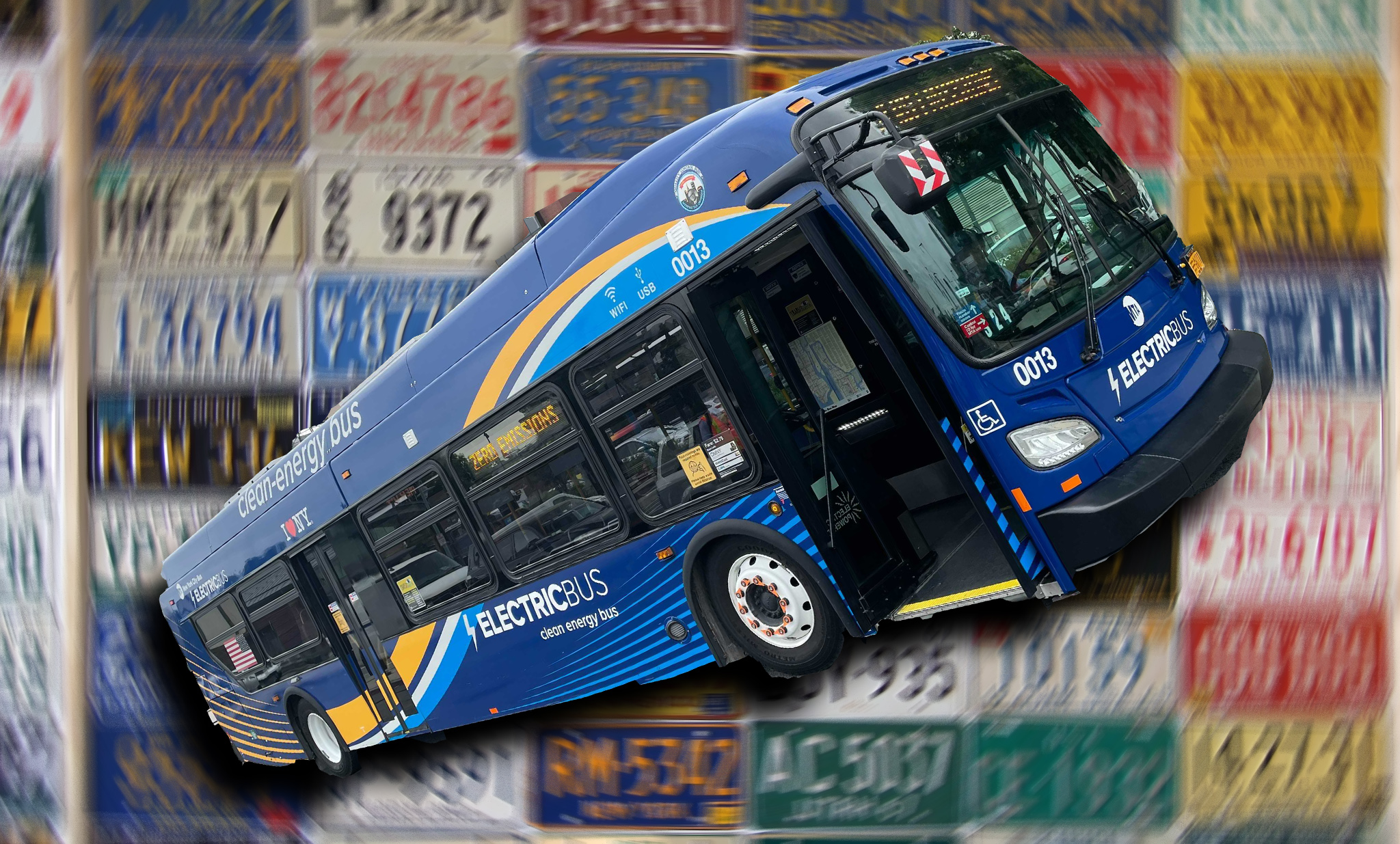Bicycling advocates say that the American Community Survey has never accurately measured bike commuting, because they don’t ask the right questions. That may be true, but the upshot is that a year that appeared to be a banner year for cycling ended up being kind of a dud, according to the ACS. The ACS recorded a slight dip in bike commute mode-share, from 0.55 percent in 2009 to 0.53 percent in 2010.

“The methodology will always work against us,” said Darren Flusche of the Bike League. The ACS question about commuting goes like this:
How did this person usually get to work LAST WEEK? If this person usually used more than one method of transportation during the trip, mark (X) the box of the one for most of the distance.
“As long as that’s the question, it’s going to undercount cycling,” Flusche said.
After all, someone who rides twice a week doesn’t get counted for any cycling. Someone who bikes to the train station doesn’t get counted. Someone who works too far away to bike but does everything else on two wheels doesn’t get counted.
A somewhat more useful survey is the National Household Travel Survey, but that has only been done twice, with an eight-year gap in between. It counts all trips, not just commuting, but it can't be broken down geographically.
The .02 percent “drop” in the ACS isn’t statistically significant, but anyone following the huge gains in bicycling over the past couple years would have expected to see a jump, if anything. Major cities like New York, San Francisco, Chicago, and Washington are competing for bike-friendly gold, installing bike lanes, bike corrals, and cycletracks at a dizzying rate. Bike-share systems are proliferating. Transportation Secretary Ray LaHood declared bikes on an “equal footing” with other modes. Federal funding for bicycling has risen dramatically above what it was just five years ago.
So what gives with the low number?
Flusche emphasizes that we don’t really have to go looking for excuses to justify the dip. After all, in the 70 biggest cities in the U.S., cycling rates held steady. In cities dedicated to improving cycling, rates rose.
And sometimes, you just have to take the long view: Bike commuting is up 39 percent in the U.S. since 2000 – and up 63 percent in the 70 biggest cities. That’s news to celebrate.
John Romeo Alpha at network blog One Speed: GO! did an interesting analysis of the data as well, finding that population density tended to have a proportional effect on bike commuting. He found that Seattle managed to have a high bike mode share without density and New York had high density without correspondingly high mode share, but in general, the 25 most populous cities had cycling rates that corresponded with their mode share.
That doesn't necessarily offer an explanation of the numbers, but it does help illustrate how a city can increase its bicycle mode share. The Bike League also noted that its awarded "Bicycle Friendly Communities" just keep winning over new cyclists, but it's harder to see year-over-year. Since 2005, "the 38 Bicycle Friendly Communities among the 70 largest cities saw a 95 percent average increase in bicycle commuting" compared to 46 percent growth for the rest of them. Numbers like that put a .02 percent drop, in a survey with questions stacked against cyclists, in perspective.





